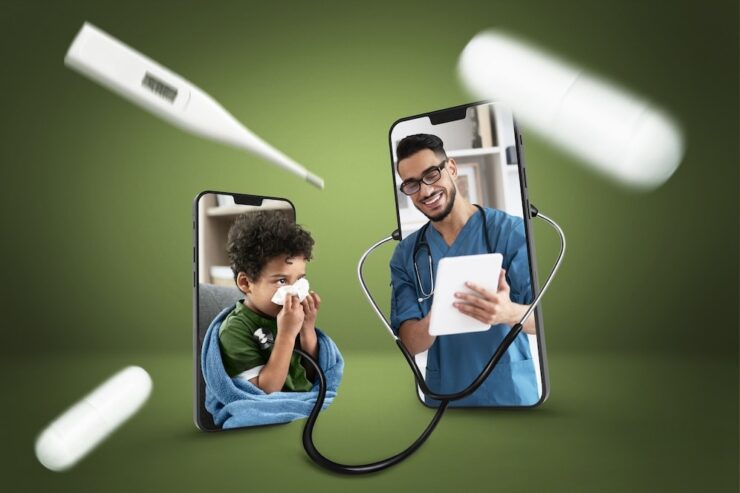Access to timely, flexible healthcare is one of the defining challenges of modern society.
With NHS services under pressure and rural communities often underserved, medical trailers have emerged as a vital tool in expanding reach and resilience within healthcare delivery.
They offer a fast, scalable solution to bring clinical services closer to where people live and work, bypassing the limitations of fixed infrastructure.
Medical trailers are not just stopgaps—they are a smart, forward-thinking response to system overloads and geographic inequalities.
What Are Medical Trailers?
Medical trailers, also referred to as mobile medical units or mobile clinics, are purpose-built vehicles designed to deliver essential health services outside of traditional hospital settings.
These self-contained units come equipped with everything from consultation rooms to diagnostic equipment, allowing clinicians to treat patients in virtually any location.
Their layouts are fully customisable. Depending on requirements, they can function as:
- Primary care units with general practitioners on board
- Specialist testing labs (for audiology, cardiology, etc.)
- Vaccination or blood donation stations
- Emergency triage points during crises
Power, water, HVAC, and secure medical storage are all integrated, making them operationally independent and ready for deployment at short notice.

A Solution for Rural and Remote Care
Rural communities often struggle with access to GP surgeries or specialist clinics due to distance and limited transport links.
Mobile clinics help bridge this gap, bringing care directly to those who need it.
These trailers can be deployed to farms, small villages, or coastal areas, ensuring patients receive support without the burden of long travel.
In isolated communities, regular medical contact can be life-saving—not only for chronic conditions but also for early intervention in undiagnosed illnesses.
Mobile units can operate on predictable routes, creating a sense of consistency and trust among residents who may otherwise avoid or delay seeking care.
They also reduce the burden on caregivers and family members, especially in areas where public transport is infrequent or inaccessible.
Supporting the NHS with Agile Infrastructure
One of the most valuable attributes of mobile medical units is their adaptability.
During health crises such as the COVID-19 pandemic, they have been used for vaccinations, testing, and urgent triage.
NHS Trusts benefit from the rapid deployment of these units to areas experiencing service backlogs or unexpected demand surges.
Key benefits include:
- Quick response to seasonal spikes in demand (e.g. flu season)
- On-site healthcare support during festivals, sporting events, or emergencies
- Decompression of overstretched hospitals during refurbishment or emergencies
By acting as flexible extensions of hospital or clinic networks, mobile medical units strengthen system resilience without requiring permanent capital investment.
Built for Purpose, Designed for Comfort
Modern medical trailers are more than temporary solutions.
They’re designed with patient dignity and comfort in mind, featuring climate control, accessibility features, and modular interiors that can accommodate anything from dental suites to dialysis equipment.
Patients often associate mobile units with cramped or makeshift setups, but today’s medical trailers challenge that perception.
Many offer:
- Wide, non-slip access ramps and automated doors
- Clean, professional interiors that mirror fixed-site clinics
- Noise insulation for privacy and calm
- Digital integration for seamless electronic health record access
Medical staff benefit too, with ergonomic layouts that reduce fatigue and improve workflow efficiency.
Enhancing Public Health Initiatives
These trailers also play a crucial role in preventative healthcare.
Public health campaigns around smoking cessation, cancer screenings, and mental health awareness often rely on mobile clinics to reach communities that may not engage with conventional services.
Preventive care is most effective when it is proactive and convenient.
Medical trailers enable this by appearing in community hubs such as:
- School car parks
- Supermarket forecourts
- Workplace campuses
- Sporting grounds or event venues
They help reduce health inequalities by addressing low screening uptake among hard-to-reach groups.
Their visibility also reduces stigma around sensitive services like mental health support or sexual health testing.

Partnering with Experts in Mobile Healthcare
When investing in healthcare mobility, quality and reliability are paramount.
Lynton Trailers is a trusted UK manufacturer specialising in bespoke medical trailers for NHS Trusts, charities, and private healthcare providers.
Their units are engineered to exacting standards, ensuring safety, hygiene, and long-term performance.
Lynton’s trailers are built with medical-grade materials, robust chassis construction, and CE-certified components.
Their team works closely with clinical leads to deliver functionally tailored designs—ensuring no space is wasted and all systems operate with precision.
They also offer:
- Maintenance and service contracts
- Custom branding for health campaigns
- On-site training for operators and medical staff
For healthcare organisations, this partnership means peace of mind and continuity of care, even in the most challenging environments.
The Future of Healthcare Mobility
As the UK continues to prioritise accessible and equitable healthcare, mobile medical units will remain a key part of the strategy.
Whether enhancing rural outreach, responding to emergencies, or supporting temporary services, these versatile trailers are redefining what’s possible in patient care.
They also align with the broader NHS Long Term Plan by:
- Reducing preventable hospital admissions
- Improving early diagnosis rates
- Promoting joined-up care across community settings
In the future, we may see trailers integrated with AI-based diagnostics, real-time patient monitoring, or remote specialist consultations—taking mobile healthcare to an even more sophisticated level.
Mobile doesn’t mean makeshift—it means smart, scalable, and patient-first.

